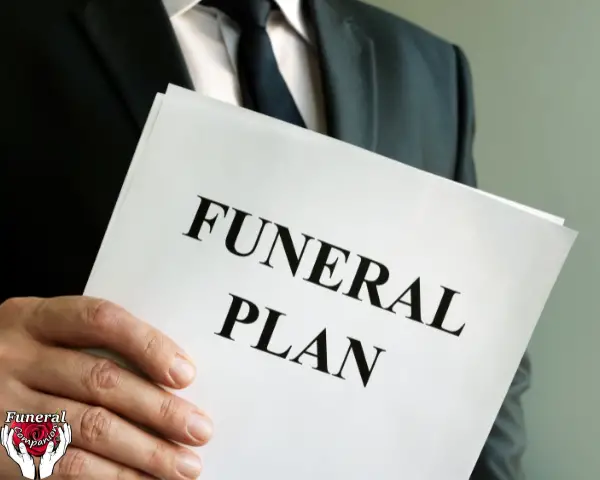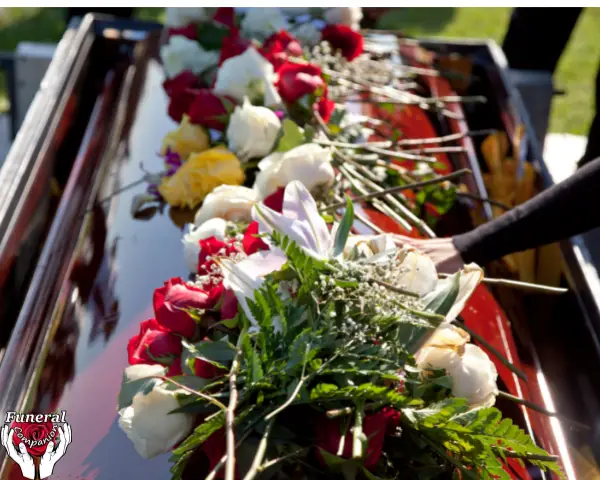Nobody likes to contemplate their own mortality, but the estimated 68% of Americans who die without a will or burial plan can cause untold problems for their next of kin. Deciding to make arrangements yourself is a brave and extremely practical decision, one that those left behind will thank you for.
Nevertheless, the major concerns I have come across are, is as cost-effective to plan ahead and, is it a jinx?
Planning your own funeral can be extremely prudent as it reduces costs, stress, and additional grief for your next of kin. There are several ways to plan a funeral, but the most effective way to transmit that information is through a funeral arrangement document. So, we shouldn’t fear doing this.
As this is obviously a big decision on your part, I’d invite you to continue reading so that you can do a bit more research into this idea and really make up your mind.

Is it weird to plan your own funeral?
Planning your own funeral may not be an everyday occurrence, but it’s by no means uncommon. While 68% of American adults may not have any form of estate plan before they die, 32% do and many of these people have clear instructions on what they wish to be done with them post-mortem.
Now don’t get me wrong, you may make some people uncomfortable when you talk about this, and I even remember feeling this way when my grandparents spoke about it.
However, they had clear requests for their funerals, such as opting for cremation over burial, and they wanted the entire family to know about it. This meant that when they did die a few years ago (sadly within weeks of each other), they both got the funeral they wanted.
In addition to making funeral plans for yourself being fairly common, it can also work out to be cheaper for all concerned. There is no escaping the fact that the funeral business is a multi-million dollar a year affair, and funeral costs are rising every year.
Often families spend more than is really necessary because they are grieving and being frugal makes many feel they are disrespecting the deceased. A funeral plan can help reduce stress for mourners and stop them from spending more than is actually necessary.
Do I have to have a funeral?
There is no law in the United States, nor any country I’m aware of, that states you must have a funeral. By funeral, I mean a service, either secular or religious, followed by a burial or cremation witnessed by friends and family.
There is, however, a legal need to dispose of a body in a proper way and within a certain amount of time (Contact an official in your state for more information).
If you don’t wish to have a traditional funeral or you, for whatever reason, don’t expect to have people attending it you can opt for a direct cremation or burial. This is where a funeral home will dispose of your remains upon collecting them from your home or a hospital.
This service, though not free, is still significantly cheaper than a more traditional funeral.
If you’d like to read my full answer on whether or not you really need a ‘real’ funeral, feel free to check out the full article here.
At what age should you plan your funeral?

In reality, every adult should make some preparation for their final care and we should all have some form of document which expresses our wishes when we pass on.
I am in my mid-thirties, just about to have my first child, and realized that I needed to write my first will. I may update this several times as my life goes on, but if something were to happen to me I know that my wife wouldn’t have been able to easily access my assets or predict my wishes for my funeral.
However, I don’t believe that I would go as far as making an agreement with a funeral home and paying a lump sum in order to lock in a funeral at today’s costs. There are several reasons for this, chiefly among them the fact that over the next 30 – 40 years (given the average lifespan of an American) a funeral home could go out of business.
So, for a younger person, you may wish to deal with a life insurance broker (see my recommendations here) over getting a funeral plan directly with a funeral director.
For someone slightly older or perhaps someone who has been diagnosed with a terminal illness, you may find that dealing with a funeral home directly can help you get a better deal on the funeral you want.
Just be sure that any agreement you make is known to your next of kin so that they don’t end up paying for another service. Read more about how old you have to be to qualify for life insurance or burial plan policies.
How much do funerals cost?

The average cost of a burial is $7,640, a cremation is cheaper at $5150, but this is an estimation based purely on costs associated with a viewing and disposal of the body.
When you take into account the cost of funeral flowers (see a cheaper alternative here), catering, headstones, and other associated costs, funerals could easily reach as much as $10,000 if not more.
However, many of these costs can be reduced. For example, renting a casket for a viewing and then being cremated or buried in a more modest model can literally save you thousands of dollars. What’s more, buying a casket yourself (or having this in your arrangements) from a retailer online, the same ones funeral homes buy from, can cut this cost in half again.
I recommend Titan Caskets as a very reasonably priced casket retailer as well as Trusted Caskets. Just remember, a funeral home is legally obliged to accept any casket a family chooses to use and cannot charge you for using it, which was not true in the past.
If you’d like to read more about how to save money on your funeral, please refer to the following articles:
- Real Help With Funeral Costs For Low-Income Families
- Full Guide: Getting Help With Funeral Costs For Veterans
- What Does A Headstone Cost?
How do I plan my own funeral arrangements?
When it comes to planning your funeral, there are a few ways you can go about it and several things you need to think about in order to make it happen.
In many cases, planning a funeral can be as easy as telling your next of kin exactly what you would like them to do with your remains. If you trust them, then a verbal request may be enough. However, in most cases, it’s best to get things in writing.
Should you include funeral wishes in your will?
I personally believe that everyone should have a will, as not having one can cause so many issues for those left behind. Writing a will can be a lot easier than people think, in fact, you can easily create your will right now online by going to lawdepot.com.
However, it probably isn’t a good idea to include your funeral requests in a will. This is because in some cases the will is only executed after a funeral has taken place and as your body cannot be deemed ‘property’ you cannot be sure your wishes will be legally carried out. So, it’s far better to create a separate document, called a final arrangement document.
What is a final arrangement document ?
Your final arrangement document should be a fairly detailed plan of your final wishes, so make sure it’s always kept somewhere conspicuous. Also, make sure you tell people about it. If you are having issues with talking about these types of things with your family, you can read my article about this here.
In addition to writing everything down, make sure that you tell someone about it, and if possible get this person to sign and witness your final arrangement document. Now, I’m not a lawyer, but having it witnessed will give it more legality and thus making it more likely your wishes will be followed.
What to include in a final arrangement document ?
As I said before, this document should be as detailed as you need it to be. Depending on the plans you have made, it may be a simple as a note telling your next of kin who to call to get the ball rolling. If you have not set arrangements with a funeral home, you may wish to outline your funeral in minute detail.
Be sure to include the following information:
- whether you have an existing burial plan and with whom
- whether you want to be buried or cremated
- where you would like the funeral to be held
- if you want a religious funeral
- The readings or songs you want at your funeral
- what clothing you’d like to be buried/ cremated in
- whether you want an open or closed casket
- Which type of casket you want – rented, material, price range etc.
- The location of your desired final resting place
- whether you have a pre-paid burial/urn plot
- Your preferance on headstone and inscription
- or, if you prefer a direct burial/cremation or to donate your body to science.
What is better, life insurance or funeral plan?

The honest answer to this is that it depends on the person and the situation. However, for many people, it may be better to have life insurance as this means that the funds are not limited to just one thing.
That is to say, when you have a funeral or burial plan, this only really allows your next of kin to spend the money on a funeral and normally with one company. Life insurance, when paid out, allows your relatives to cover the funeral costs as well as anything else that may crop up.
If you would like to find out more about life insurance, I recommend you browse my preferred brokers here.
Who pays for funeral if there is no money?
Sadly, many people die without being able to cover the cost of a traditional funeral. Thankfully, this does not mean that your next of kin will be forced to pay for a funeral they cannot afford. Legally, only a person who enters into an agreement with a funeral home MUST pay for the funeral.
Also, happily, there are several other ways to respectively dispose of a person’s remains without having to have deep pockets. Planning your own funeral, especially in this case, will really help your relatives out, so please feel free to read my full article about this for more information.




